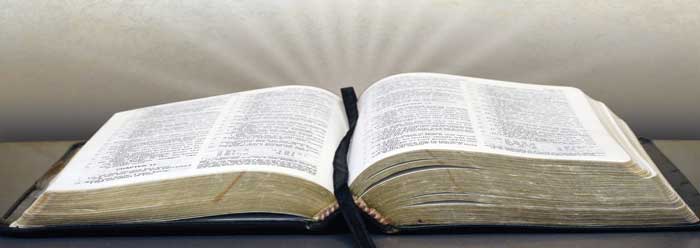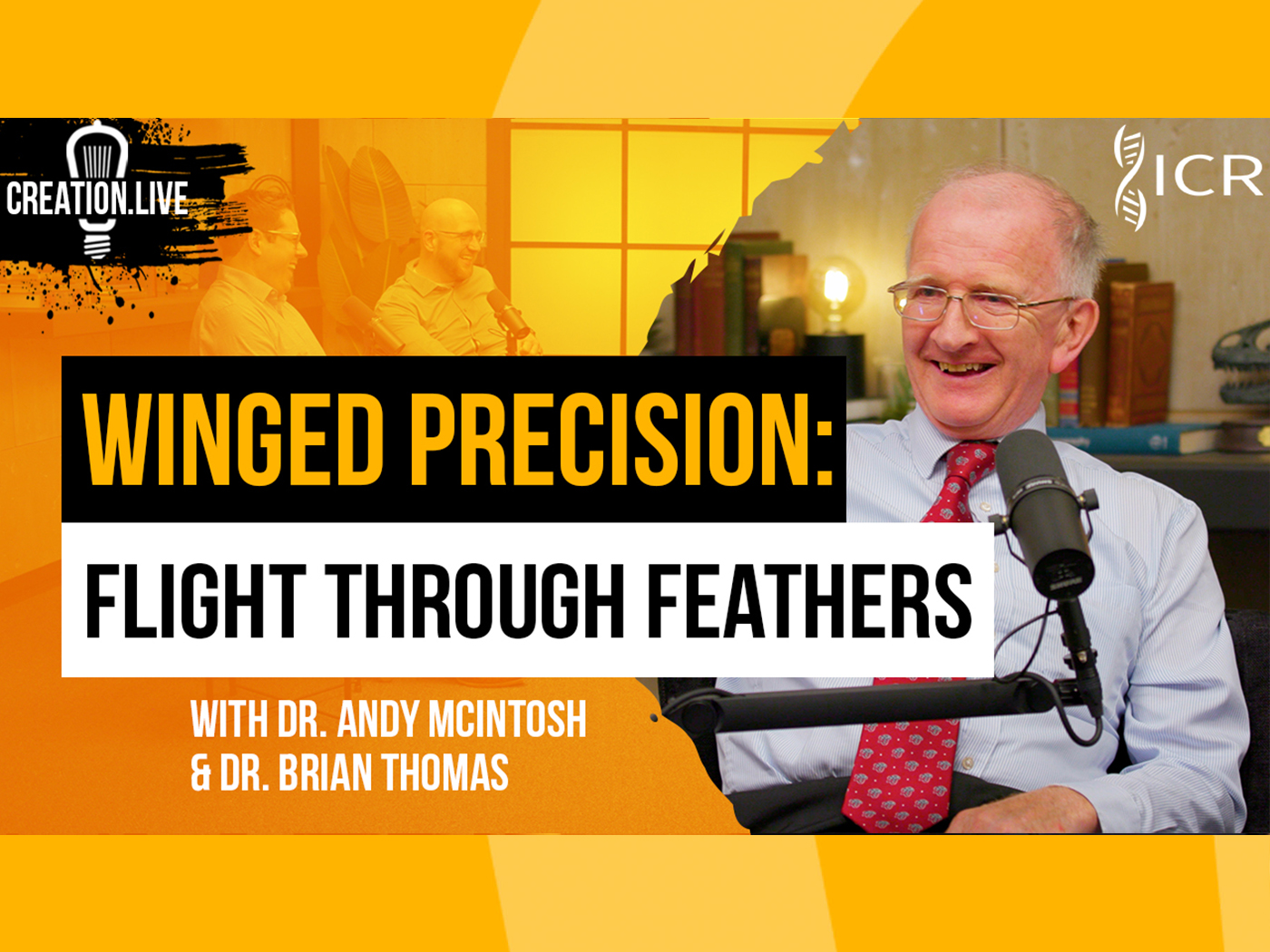Leaving a legacy is often said to be the labor of presidents and rulers. How they govern their subjects and citizens will determine just how favorably their legacy will be judged. Some leaders work hard to ensure their contributions rise to prominence in the annals of history. This is called "legacy building"
Parents also leave a legacy to their children and grandchildren. Whether it is a good one or not depends on the manner in which they raised their children, but more importantly it rests on the principles and convictions they established within their home.
This can be true of organizations, too, particularly those--like the Institute for Creation Research--that were founded by a visionary leader. And for ICR founder Dr. Henry Morris, his one certain foundation was the Word of God.
A gifted scientist and researcher, Dr. Morris was admittedly much more in love with the Scriptures than with the disciplines of science. And so it is no surprise that any compromise of the Bible, by scientists or others, affected him deeply.
Determining Authority
Is the Bible trustworthy or not? More importantly, is the Author of the Bible--God--trustworthy or not? If so, then God is supremely and exclusively authoritative on all matters about which He writes.
In other words, since God is the Author of all truth and no untruth, then the very text of Scripture is purposefully and supernaturally inspired and trustworthy, even on matters of science.
Man, when faced with truth, must decide whether he will submit to the Author of truth or reject both truth and God. There is no middle ground or compromise.
More particularly, the Christian must decide what constitutes his authority when reading and communicating the truths of Scripture. The Bible or science? The Author of the Bible or the experts in science? Again, there is no neutral position.
Dr. Lewis Sperry Chafer, founder and longtime president of Dallas Theological Seminary, wrote in the opening pages of his eight-volume Chafer Systematic Theology:
Certain well-defined articles of faith concerning the Scriptures have been and are held by the orthodox Protestants:
- The Bible is the infallible Word of God.
- The Bible is the only rule of faith and practice.
- Human reason and knowledge should be wholly subject to the Scriptures.1
Chafer continues with his list and defense of the integrity and authority of the Scriptures, in which he stated that while the Spirit of God may lead believers in matters of conduct, He does not do so "in the formulating of doctrine which might be superimposed upon the Word of God"2
Enough said. Don't tamper with God's Word!
An Unwavering Commitment
Several years before his passing, Dr. Morris published a devotional article based on Acts 4:24:
And...they lifted up their voice to God with one accord, and said, Lord, thou art God, which hast made heaven, and earth, and the sea, and all that in them is.
Commenting on the issue of Christian unity and the fact of creation, he stated emphatically:
...Christians do not speak with one accord today, even on this most basic of all truths, the fact of creation. Instead, many choose to dissemble and equivocate and compromise, inventing such self-contradictory concepts as theistic evolution, progressive creation, process creation, and such like, wistfully seeking approval from those who deny that the God of the Bible created all things and thereby doing great harm to the faith of many. Like the men-pleasers of old who "loved the praise of men more than the praise of God" (John 12:43), they seek academic approval rather than biblical authority and scientific factuality. Being of one accord with the intellectual establishment carries more weight than unity with Christian brethren who believe the Bible means what it says.3
Years later, Dr. Morris reminded believers that God will require an answer for one's words and works on earth:
We suggest that those Christians who question the truth of any portion of the Bible or who try to "wrest" the Scriptures (2 Peter 3:16) to make them accommodate some current scientific claim or some "private interpretation" (2 Peter 1:20) ask themselves if they are prepared to explain to the Lord their reasons for doing so. Remember that "every one of us shall give account of himself to God" (Romans 14:12). Would it not be better in that day to have believed and taught what Christ believed and taught? With respect to the great historical records of early history, we need to remember His rebuke of the religious leaders of the time when He was on Earth. "If ye believe not |Moses'| writings," He said, "How shall ye believe my words?" (John 5:47).4
No Middle Ground
When it comes to biblical authority, there is no middle ground. Either the Christian places his unwavering trust in the Scriptures or else he elevates himself above the Author of the Bible. Muddling the interpretation of the Creator's words with a man-made template called "modern science" denigrates God's ability to compose and communicate His message in a clear and consistent manner that demonstrates absolute integrity from Genesis through Revelation.
Question the creation account because of man's discoveries and one might as well question the virgin birth or resurrection or even the deity of Jesus Christ.
As ICR "rounds the corner" with renewed vigor in research, education, and the dissemination of truth, the foundation upon which this ministry was established more than 35 years ago remains solid.
New "movements" may continue to rise up, garnering temporary popularity and "success" only to fade away as quickly as they appeared--often due to their weak scriptural foundation.
Some attempt to add to the Scriptures based on natural revelation. But God's creation cannot contradict God's Word. Others refuse to name the One who designed it all in order to gain acceptance among men. Jesus had a few direct words in Luke 9:26 about those who are "ashamed" of Him.
While the generation of Dr. Henry Morris is passing, the legacy he has left to his family and his ministry continues in the tradition of unashamed commitment to the Word of the Creator.
References
- Chafer, L. 1980. Chafer Systematic Theology, Volume One. Dallas, TX: Dallas Seminary Press, 15.
- Ibid, 15.
- Morris, H. 1995. Creation and United Prayer. Days of Praise.
- Morris, H. 1999. The Bible and Jesus Christ. Acts & Facts. 28 (5).
* Mr. Ford is Executive Editor.
Cite this article: Ford, L. 2007. Honoring the Word of the Creator. Acts & Facts. 36 (9): 4.



















